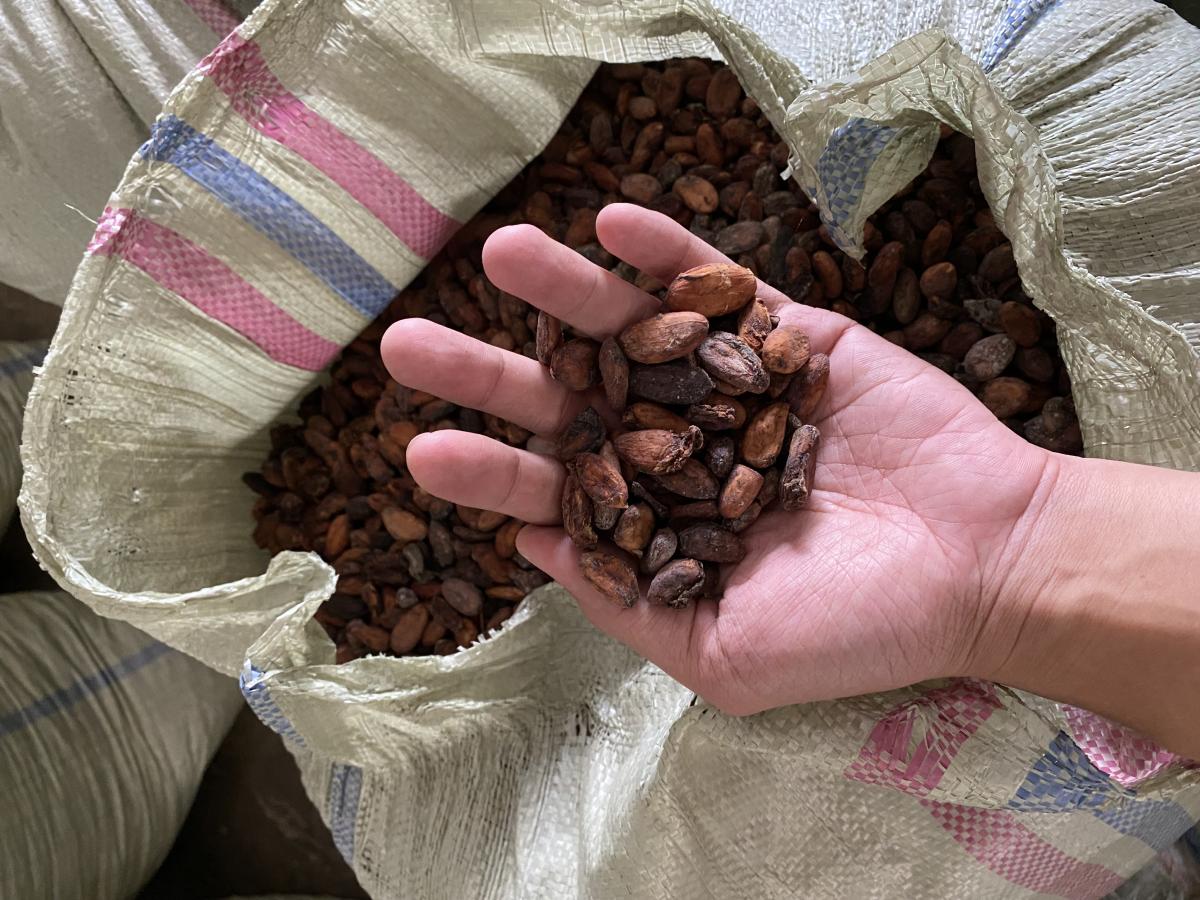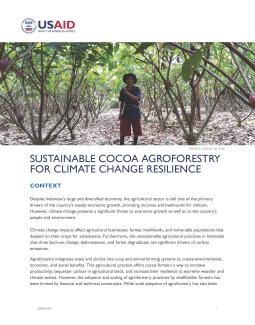Context
Despite Indonesia’s large and diversified economy, the agricultural sector is still one of the primary drivers of the country’s steady economic growth, providing incomes and livelihoods for millions. However, climate change presents a significant threat to economic growth as well as to the country’s people and environment.
Climate change impacts affect agricultural businesses, farmer livelihoods, and vulnerable populations that depend on their crops for subsistence. Furthermore, the unsustainable agricultural practices in Indonesia that drive land-use change, deforestation, and forest degradation are significant drivers of carbon emissions.
Agroforestry integrates trees and shrubs into crop and animal farming systems to create environmental, economic, and social benefits. This agricultural practice offers cocoa farmers a way to increase productivity, sequester carbon in agricultural lands, and increase their resilience to extreme weather and climate events. However, the adoption and scaling of agroforestry practices by smallholder farmers has been limited by financial and technical constraints. Wide scale adoption of agroforestry has also been challenged by the difficulty of convincing often-risk-averse farmers of the social, economic, and environmental benefits offered by agroforestry practices.
Advancing Cocoa Agroforestry towards Income, Value and Environmental Sustainability (ACTIVE)
Through ACTIVE, a partnership with Mars Inc., one of the leading purchasers of cocoa globally, and the Institute for Development Impact (I4DI), the United States Agency for International Development (USAID) assists Indonesia to achieve its commitment to combat climate change and strengthen economic growth while reducing inequality and poverty.
ACTIVE promotes evidence-based sustainable cocoa agroforestry practices to improve climate change resilience and increase smallholder farmer incomes while ensuring a high-quality cocoa supply for global markets. ACTIVE collaborates with governments at all levels, local communities, financial institutions, and other key players to promote proven, scalable agroforestry practices, increase farmer access to financing and crop insurance, and build partnerships with stakeholders to enhance the business environment for cocoa agroforestry. Through ACTIVE, USAID is implementing inclusive agroforestry market-based strategies to ensure that smallholder cocoa farming and related agribusinesses in South and Southeast Sulawesi Provinces are both sustainable and profitable.
The ACTIVE partnership between USAID and Mars Inc. will increase the impact of USAID assistance to Indonesia. It will benefit from Mars’ investment and supply chain management experience. The partnership will also leverage lessons learned from Mars’ recent successes in improving livelihoods of the smallholder cocoa farmers its supply chain depends on.
Results
ACTIVE aims to help 9,000 farmers adapt to climate change and manage their cocoa farms with sustainable practices. This support aims to reduce an estimated 650,000 tons of carbon dioxide equivalent (CO2e), increase farmers’ cocoa yields by 30 percent, and increase their incomes by 15 percent.
In its first year, ACTIVE developed an agroforestry curriculum, training materials, and training tools to be used in improving the capacity of cocoa farmers to manage their farms sustainably. In partnership with Mars, ACTIVE provided crop insurance to 1,475 cocoa farmers to provide coverage for excessive land moisture, an innovative product for farmers
Contact
AOR: Donald Tambunan, USAID at dtambunan@usaid.gov
AAOR: Mohamad Ridlo, USAID at mridlo@usaid.gov
COP: Danang Ariawan, I4DI at dariawan@i4di.org


